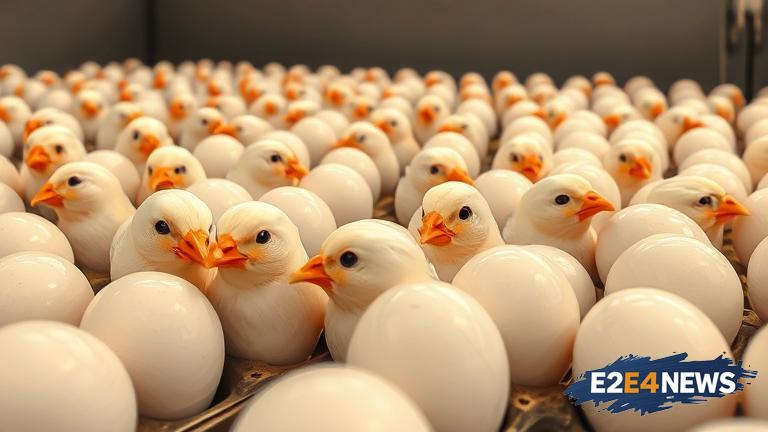In a groundbreaking move, Iceland has announced its commitment to abandoning cage eggs by 2027, marking a significant milestone in the country’s journey towards improved animal welfare. This decision is expected to have far-reaching implications for the egg industry, as it prioritizes the well-being of laying hens. The Icelandic government has set a clear deadline for the transition, giving farmers and producers a reasonable timeframe to adapt to the new standards. As a result, consumers can expect to see a shift towards more humane and sustainable egg production methods. The move is seen as a major victory for animal welfare advocates, who have long campaigned for an end to cage eggs. Cage-free systems are considered to be more humane, as they provide hens with greater freedom of movement and access to natural light. This, in turn, can lead to improved health and welfare outcomes for the birds. The decision is also expected to have economic benefits, as consumers increasingly demand more sustainable and humane food products. Icelandic farmers will need to invest in new infrastructure and equipment to meet the cage-free standards, which could create new job opportunities and stimulate local economies. Furthermore, the transition to cage-free eggs is likely to have environmental benefits, as it can lead to reduced waste and more efficient use of resources. The Icelandic government has pledged to support farmers during the transition period, providing guidance and resources to help them adapt to the new standards. The move is part of a broader trend towards improved animal welfare in Iceland, which has already implemented strict regulations on animal husbandry and welfare. The country’s commitment to cage-free eggs is seen as a model for other nations to follow, as the world moves towards more sustainable and humane food systems. Animal welfare organizations have welcomed the decision, praising the Icelandic government for its leadership on the issue. The move is also expected to have implications for the global egg trade, as countries with lower animal welfare standards may face increased pressure to improve their practices. In conclusion, Iceland’s decision to abandon cage eggs by 2027 is a significant step forward for animal welfare and sustainability. As the country transitions to cage-free egg production, it is likely to have far-reaching implications for the egg industry, consumers, and the environment. With its strong commitment to animal welfare, Iceland is poised to become a leader in the global movement towards more humane and sustainable food systems. The country’s example is likely to inspire other nations to follow suit, creating a ripple effect that could transform the egg industry worldwide. As the 2027 deadline approaches, Icelandic farmers and producers will need to work together to ensure a smooth transition to cage-free eggs. With the right support and guidance, the country is well on its way to achieving its goal and setting a new standard for animal welfare in the egg industry.
Wed. Nov 5th, 2025
